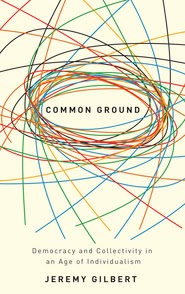
One could describe the trajectory of Marxist/Spinozism in the twentieth century as a trajectory that passes from epistemology through ontology to anthropology. With Althusser the focus was on the break between the first and second kind of knowledge, with the passage from ideological imagination to adequate scientific knowledge. As much as Althusser introduced immanent causality to Marxism it was primarily an epistemological matter, of grasping the cause in and through its various effects. Negri turned to ontology, or as he often put it, metaphysics, understanding immanence as the immanence of potentia, of power. The autonomist hypothesis becomes not just a way to make sense of capital, but all of reality. Everywhere Potestas, God's power or transcendence is asserted, we must find potentia, the immanent power of social relations and the human imagination. The last, and most recent turn, found in the works of Lordon, Citton, and, in a certain sense, Jaquet could be called "anthropological." The focus is less on the problem of inadequate and adequate ideas, understood as the problem of ideology, or the self organization of power, but on desire, affects, and imagination.


















